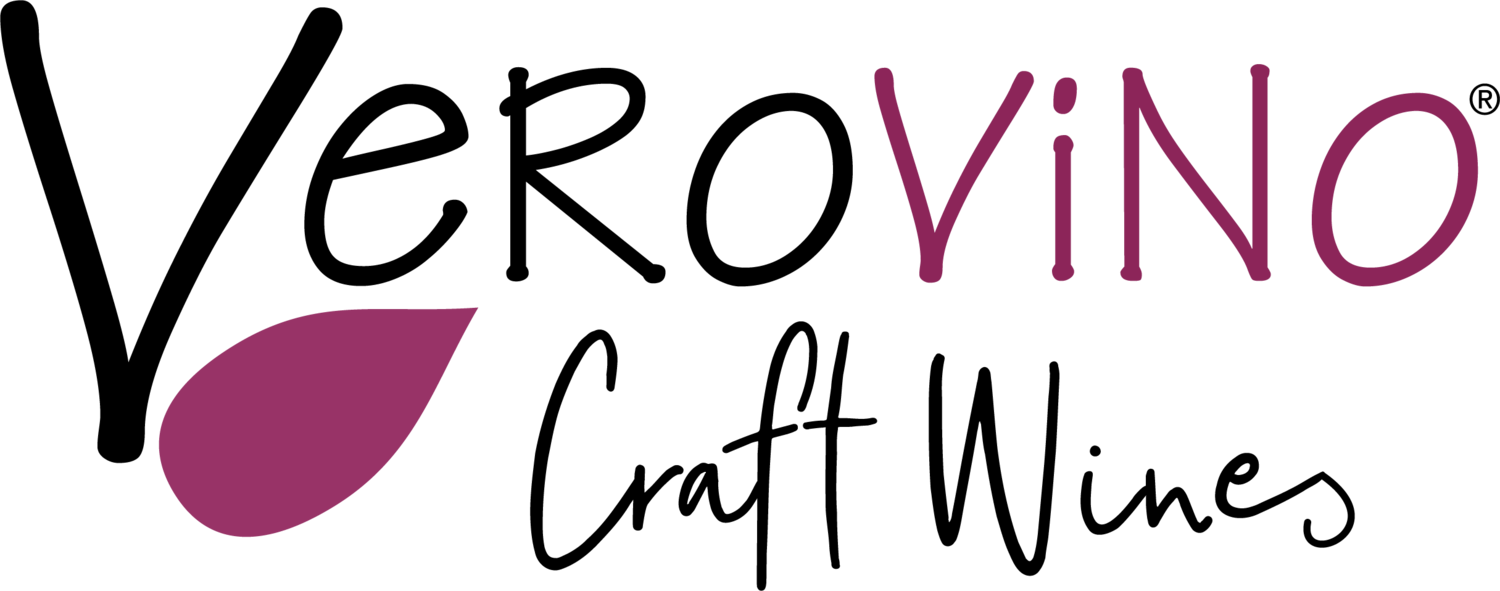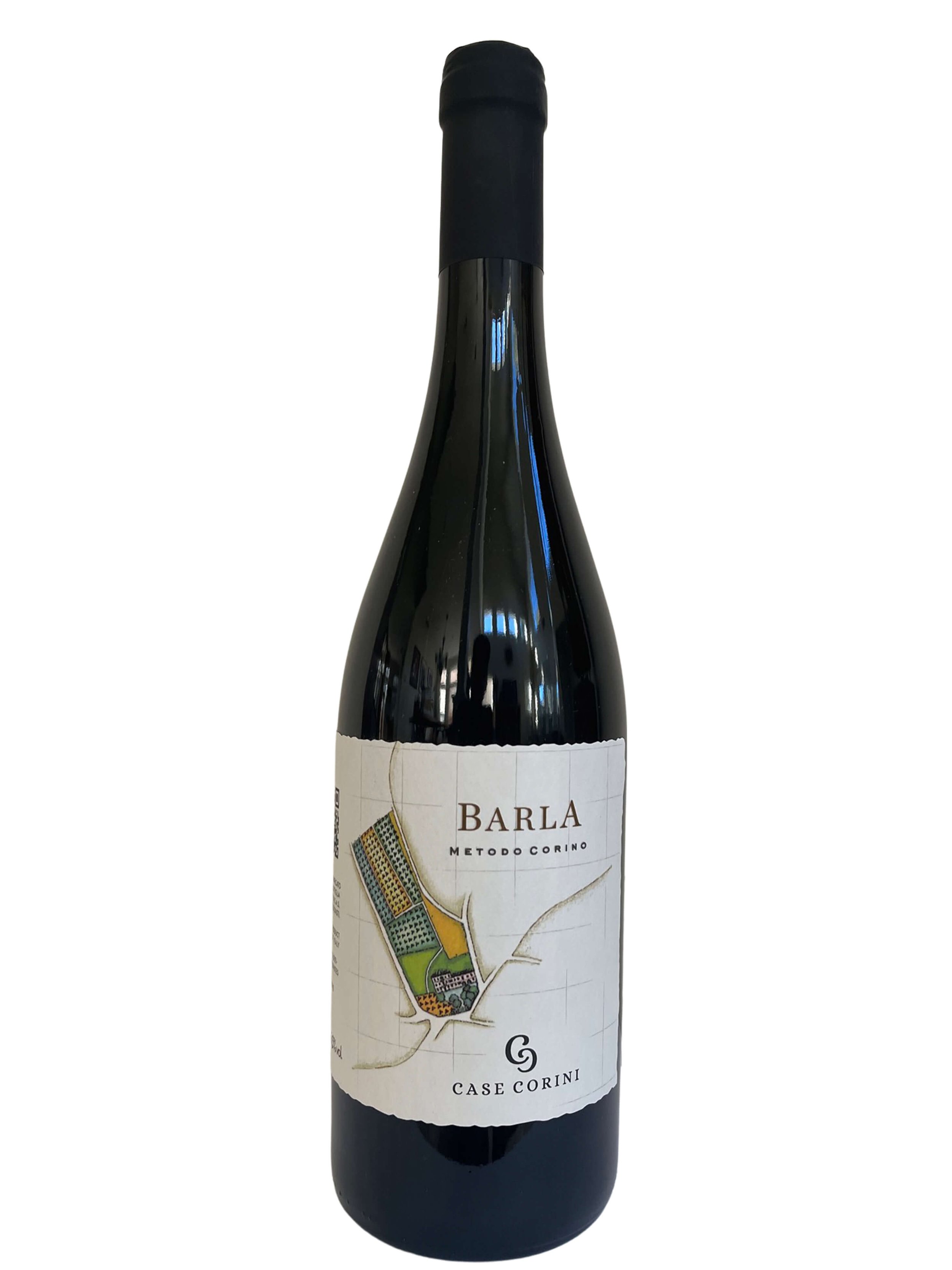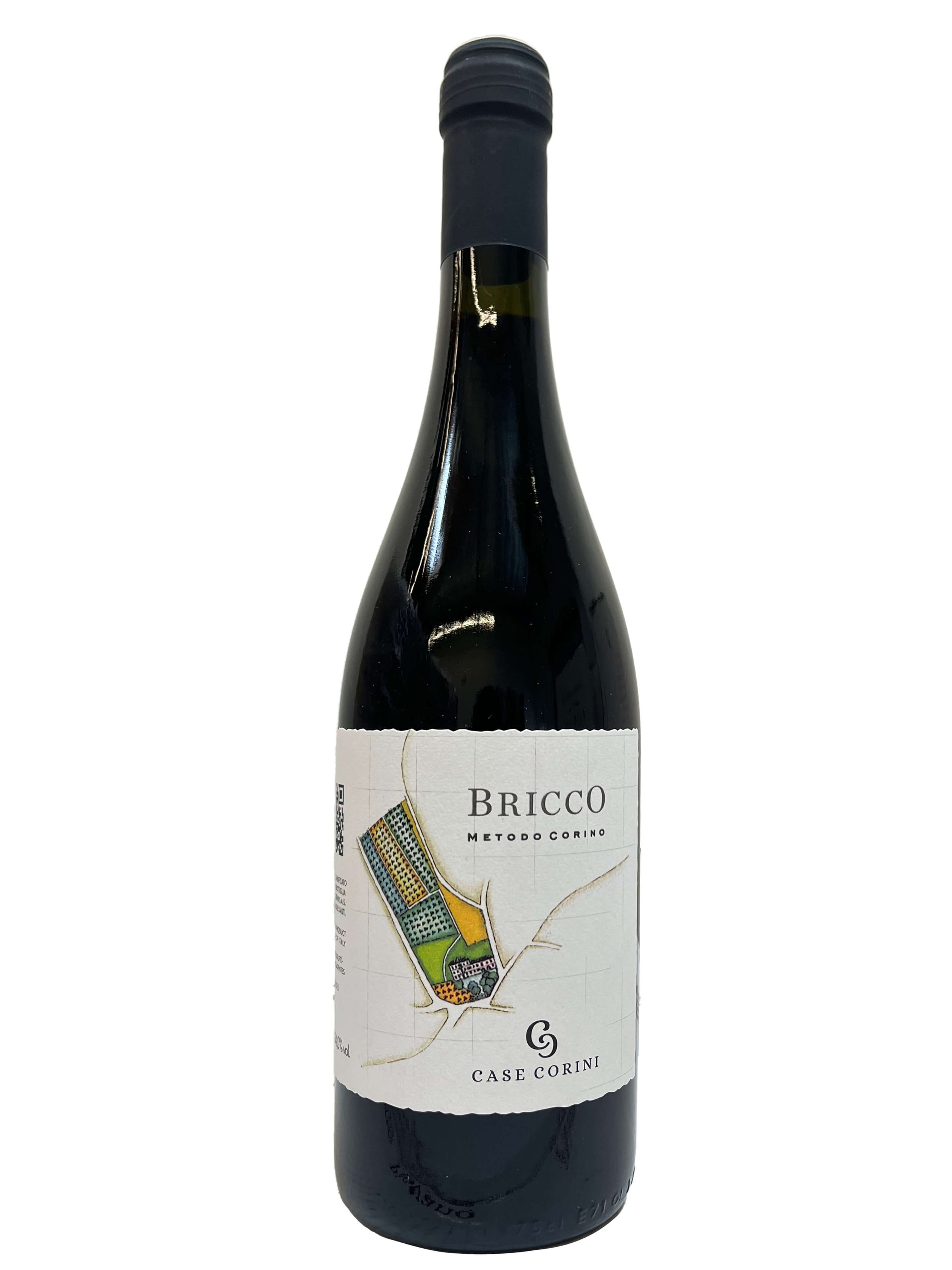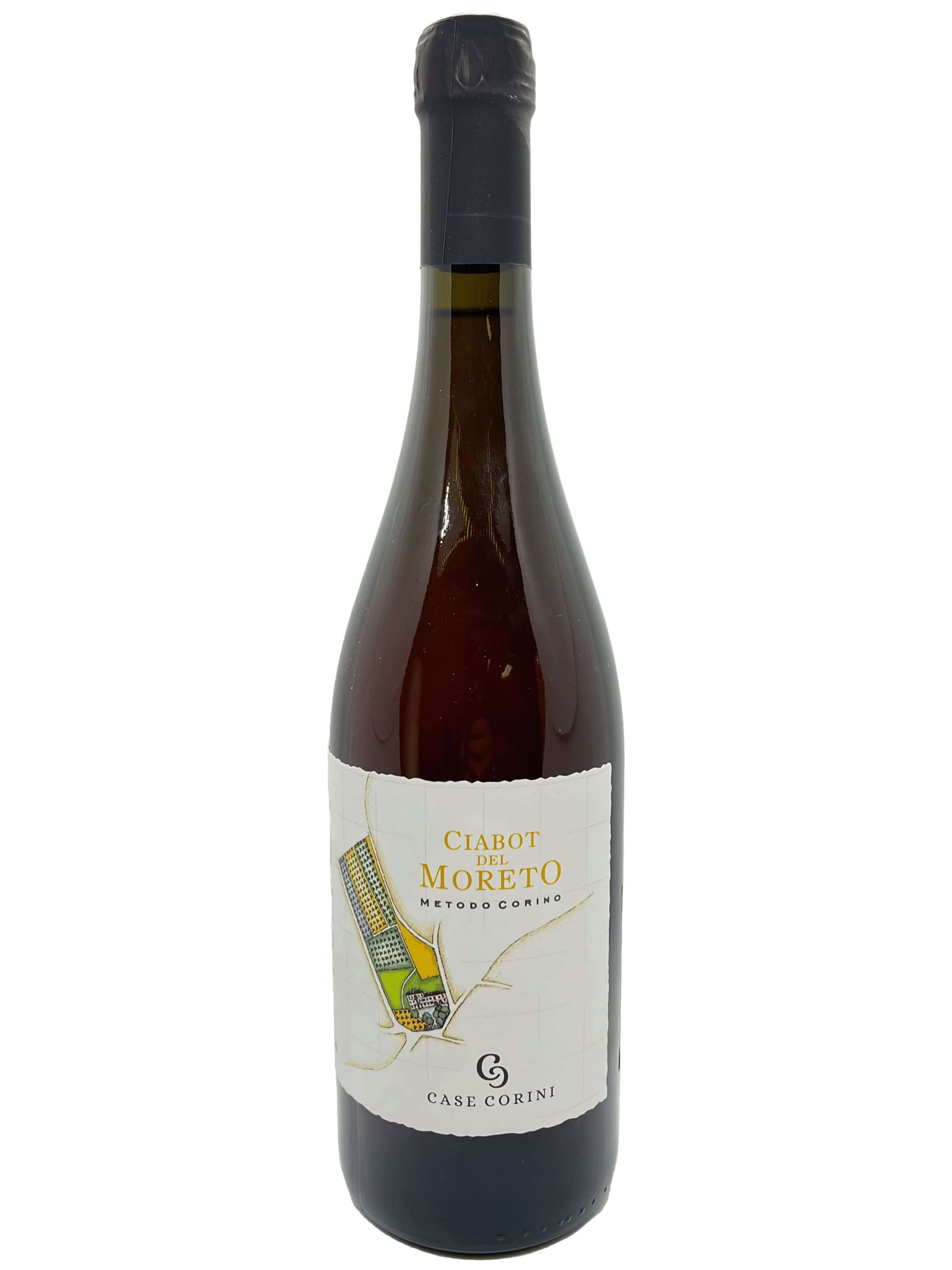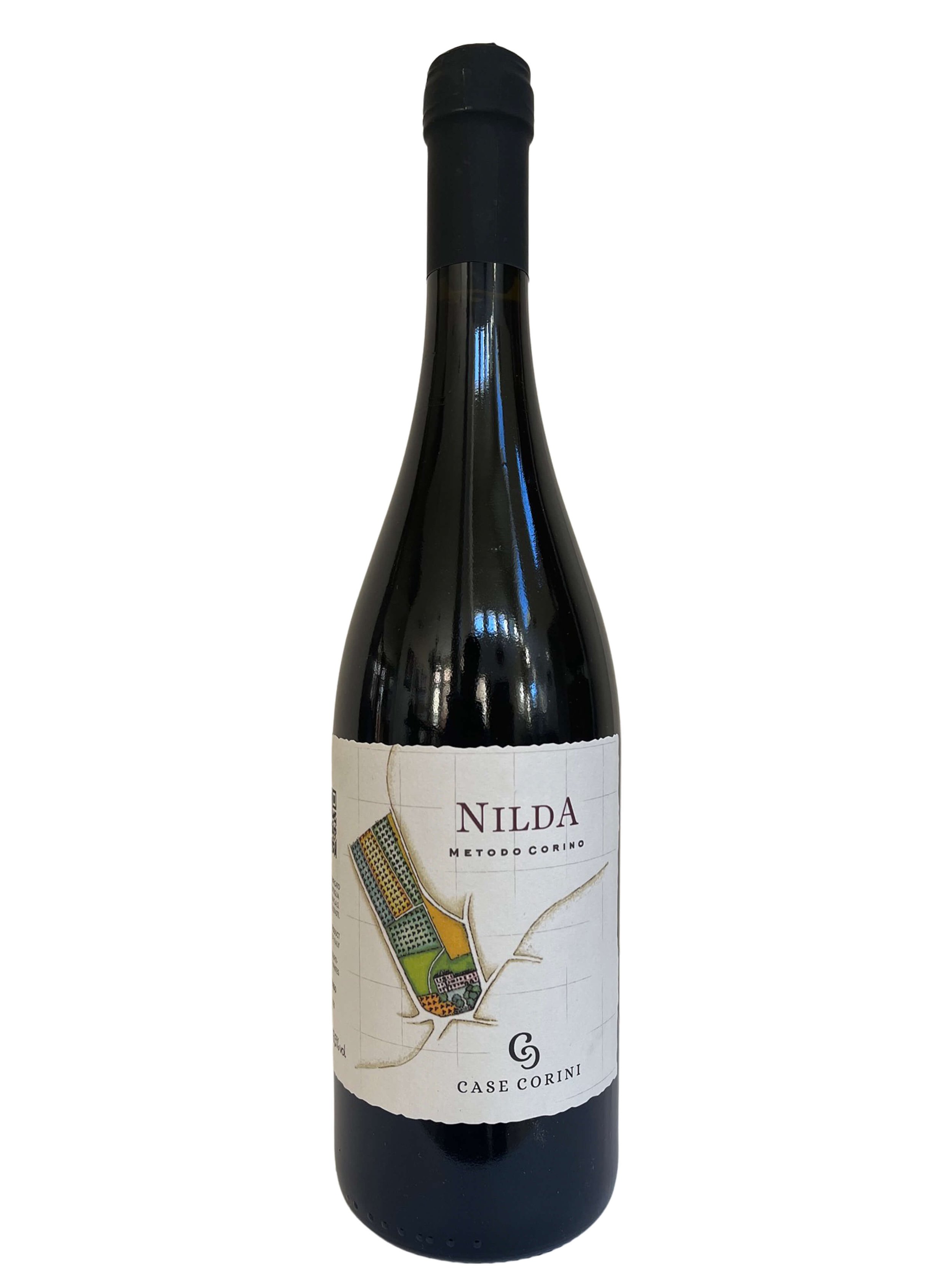Carrying on a Family Legacy of 6 Generations
Following our recent article about our interactions with Lorenzo Corino, the viticultural researcher and leader in natural wine who inspired many throughout his life in the wine community worldwide, we wanted to get to better know his children, Guido and Luisa Corino, the 6th generation of the Corino family growing and making natural wines at their estate winery Case Corini in the hills of Costigliole d’Asti in the Monferrato wine region of Piedmont, Italy.
With a father who was such an outspoken and figurehead in sustainable winegrowing, the first to defend and explain natural wine, regenerative farming practices, biodynamic wine, combating climate change and other tenets of farming for the future, what legacy did Lorenzo Corino leave his children? What did the learn from their father? What are their own passions and goals that they would like to achieve as the sixth generation of their family farm and biodynamic winery?
We recently had the opportunity to spend a day with Guido and Luisa walking their vineyards, touring their historic cellar, and chatting over their natural wines. It was a tour Guido had taken us on before, but now with the addition of Luisa to our group, a whole new aspect of the generational winery came forward. What followed was a series, rather a flow, of discussions and topics not only reinforcing their commitment to nature wines, regenerative agriculture, and the art of biodynamic winemaking, but also looking back at it all through the lens of their family history to understand just from where their passion for wine grew.
The Family Foundation
The original Corino family home, where Biago lived.
The Corino family can trace their family back seven generations, six of which have been involved in winemaking. Starting with Biagio in the early 1800s, the Corino family lived in a humble abode tucked into the bottom of the valley (while the current house resides at the top of the hill). The foundations of the home (and thus the family) still remain crumbling in a corner of their land between the Bricco and Achille vineyards. Nearby, at the base of the hill, was the ever present water well, vital for the growing family. This was the beginning of the Corino family, the family that during another six generations, would move up, to the prestigious hilltop position where the family home sits today.
In the second half of the 1800s, Biago’s son, Battista began to build this hilltop family home. Towards the end of the 1800s, he built a prominent part of family history. This pillar tells an important oral story from the family history; you find it arriving to the family home, prominent at the entry gate, as roadside shrine to San Martino (or Saint Martin), the patron saint of agricultural workers. As part of the 6th generation of winemakers, Luisa, told us, Battista built the shrine as a thanks to Saint Martin after a cart overturned, destroying its cargo (wine) but miraculously the driver, a young boy, was unscathed.
But the first thing Battista began to build was the wine cellar, making him the first documented winemaker in the family. Slowly, he began to build the house above the cellar. However, his son, Luigi, was the Corino to greatly add on to the home. In the beginning of the 1900s, Vincenzo, or affectionately known as Centin, ‘a special person’ as Lorenzo Corino described him, who officially completed the house. Lorenzo so admired Centin that he named his Nebbiolo wine after him. By the 1950s, Centin was beginning to refine and grow the winemaking pastime of the family.
An old family heirloom bottle of barbera, bottled by 4th generation, Pietro Corino.
This paved the way for Pietro and his son Lorenzo to begin seriously bottling and selling the wine, finetuning the traditional low intervention winemaking style of the family. It is Pietro that Guido and Luisa remember as an important figure in their lives. Luisa says he was a voracious reader, consuming literature, anthropology, philosophy, and he transmitted to her this love of books and knowledge. Today, the seventh generation of Corinos and sixth generation of winemakers, Guido and Luisa continue the work of their forefathers and continue to guide the legacy of the Corino family.
More Than Just Winemakers…
Initially, as Guido explained, when Battista built the cellar, the family just made wine for their own consumption, storing it in big bottles or containers known as damigiane. As time went on, the following generations began to see the value in their work, and began to sell these damigiane to other locals and city-folk from Turin. Eventually, the wine was bottled, but it wasn’t until Pietro that the first labels were even printed.
Because wine was not the family’s main priority, rather a passion and a love passed down from generation to generation, every generation had other occupations beside simply ‘vigneron’. Being an agricoltore or farmer was a part of life in the country; as Guido talked about how life back then were like mini self-sufficient ecosystems. Vineyards included fruit trees and vegetable gardens within the rows of vines, families grew their own food. But besides that, they had other jobs too. Like Battista and Pietro, that besides winemakers, were also wood workers and carpenters. Or Luigi who was a watchmaker and his economic success allowed him to begin the largest expansion of the family home.
5th Generation and natural wine legend Lorenzo Corino
Of the more recent generations, Lorenzo, was an agricultural researcher, writer, and important advocate for regenerative agriculture and biodynamic wine. Lorenzo’s children, the 6th generation of family winegrowers, follow in this trend: Guido is an architect and Luisa an educator and social worker in her community.
The Fifth Generation: Lorenzo Corino
Perhaps what has pushed the family name to prominence, especially in the natural wine circles, is the work and advocacy of Lorenzo Corino. An agronomist by profession and biodynamic farmer by passion, he dedicated his life to researching the principles of regenerative farming that his family had always innately followed.
While Lorenzo himself has been covered here before in our founder Sheila Donohue’s personal reflections and memories of him after his passing in November of 2021, seeing him through the eyes of his children is another story. They remember their father as a man dedicated to his work and research, who instilled in them patience above all. This patience was the biggest lesson Guido learned from his father. Luisa remembers key catchphrases that her dad would say like ‘Wait, It is not time.’ Luisa learned determination from her father. Lorenzo Corino had his ideals and carried them forward above all; he was very determined and dedicated. Luisa is also reminded often of key catchphrases her dad would say, like ‘Wait, It is not time’, or ‘Avanti tutta’ meaning ‘Full steam ahead’.
Both siblings remember their father being incredibly fun to travel with. Guido talked about how some of his favorite memories with his father were on the road, travelling to various wine regions, wine conferences, and other wine events. Luisa too, remembers a mega-road trip with Lorenzo where they drove from Piedmont all the way to Cambridge in England to say hello to his old professors and friends.
The New Kids on the Block
Parts of Luisa and Guido’s stories we had heard during a VeroTalk with them last year, but in person, traipsing through the land they grew up on, new things began to emerge. Luisa pointed out trees planted by ancestors, Guido dug in the soil passionately demonstrating how they are farming sustainably, and the cool, crisp, autumn air energized all. The siblings are warm and welcoming, with wisdom and knowledge that comes through as they speak and share their family memories. While they began in earnest to take a serious role in the winery in 2015, their first real ‘vintage’ was in 2017.
Luisa (center) and Guido (right) in their family winery talking about their family history.
As the afternoon winds on, Luisa talks about the harvest season. She describes it as a tappa fondamentale or a fundamental step in the yearly work, remembering her first harvest in 1982. Down in the cellar Guido recounts excitedly being allowed to ‘help’ as a young child to operate the pump to move the wine to the bottling machine. It was operated with a machine that was like a mix between a stationary bike and an elliptical, and he adored being able to pedal and pump with all the energy and enthusiasm only a young boy could muster.
In the present day, they play off each other well, using their strengths in different areas. Guido takes on a technical role, overseeing the vineyards and winemaking processes, with Luisa looking over the administration, bureaucracy and business side of things. However, when talking about the future of Case Corini under their care, she says she wants to become more involved with the technical and physical parts of the biodynamic winery as well.
When asked what they loved about wine, both talked about how wine is like a glue, connecting like minded people and tying them together. Guido loved the connection it allows one to draw between people and places, and how a good wine can help one remember important moments and memories. Luisa loves how it allows you to travel far away, while staying in place. Wine allows you to taste a different location, a different place, without needing to travel there.
Guido getting his hands dirty in the vineyard explaining regenerative agricultural practices.
The Wines of Case Corini
In the past, we have answered questions like ‘what is natural wine’ or ‘what is regenerative agriculture’ in previous articles. With the work being done by the Corino family, we see real life examples of how sustainable wine is being cultivated and made with the maximum consideration of future generations. After all, we hope there will be a 7th generation of Case Corini, right?
So now we have covered six generations of winemakers in the Corino family… and where does that leave the wine? Well, as we have mentioned, Case Corini specializes in natural wines, farmed sustainably with regenerative agriculture. They make organic wine that is also vegan wine, following biodynamic wine making principles. Making sure they work in both the vineyard and cellar with as minimal intervention as possible, there are no sulfites added and their wines are 00 wines with native yeast fermentation.
While they focus mainly on red wines, especially full bodied red wine. However, their anomaly wine is Ciabot del Moreto, a skin contact Moscato, their only white wine, or really orange wine, that is steel aged. Round and filled with apricot and ginger notes, it is not your typical moscato from the Asti hills.
It is in their Barbera wines and nebbiolo wine where they shine. It might be in a blend of nebbiolo and barbera like Achille, where Guido says he likes how the nebbiolo and barbera work together, strengthening each other in bad years or tempering over-excitement in good years. Or like in Nilda where mostly barbera is blended with a small percentage of other indigenous varieties.
Luisa passionately talking about family history in the Bricco vineyard.
A fun wine of theirs, new to our portfolio of wines by Case Corini, is Bricco. From the vineyard closest to the house, it was an old experimental vineyard. With the largest percentage being barbera, the rest of the vineyard is made up of a mish mash of different varieties from old-vine (planted close to 80 plus years ago!) grignolino, to freisa, to a myriad of other indigenous varieties.
Lastly, but certainly not least, are their wines that are ‘primarily’ monovarietal single vineyard wines:
Centin, mostly a Nebbiolo wine from old vines, that is barrel aged for three years (for reference, that is how long Barbaresco is aged!).
In the Barbera wine category, Barla takes the cake. In just a few years the vines of the Barla vineyard will be celebrating their 100th birthday, and this wine comes through, after extensive wood aging, as complex, rich, and a soft round mouthful.
Both wines are the epitome of a full bodied red wine!
Corino Family Member’s Most Memorable Wine & Vintage
Guido (left) and Luisa Corino (center) with Jacqueline of Vero in the Bricco vineyard during our visit to the Case Corini estate.
As Lorenzo Corino told us during his winetasting seminar at Raw Wine New York 2019, the wine which has most meaning to him is Case Corini’s 1967 Barla, which is the year when he took over the winemaking from his dad.
What wines have special meaning to Guido and Luisa?
For Guido favorite is the 2016 Barla, which, lucky for you, we just imported more in!
Luisa says her favorite is the 2011 Barla, but in a pinch the 2017 Barla and the 2017 Achille are what she loves to drink.
For those of you that know our curation style, we love to compare and contrast wine styles, varietals, places. Whether your interested in Case Corini wines, or other orgainic wines, try a selection of different ones from our portfolio, as mentioned above and shown below.
Come meet Guido in person and taste their wines at Raw Wine New York November 12th and 13th. We are still organizing Guido itinerary for the rest of that week. Contact us to organize to meet up with Guido Corino during US East Coast Tour the week of November 12th.
As a reminder, we sell to both businesses and consumers across the US:
We are enlarging our network of distributors around the country. Reach out to us if you are interested in distributing our wines.
We sell to wine stores and restaurants in certain states - contact us if you would like more info.
We do corporate gifts and sommelier guided wine tastings. Email us and we’ll tailor unique and sustainable corporate gift ideas.
If our farm crafted wines and olive oils are not in your local shop or restaurant buy wine online here and we’ll ship it to you.
We also have a wine club for true wine explorers seeking to discover a unique and authentic small production wine they never had - it just won an award for Best Wine Club of Ventura!
